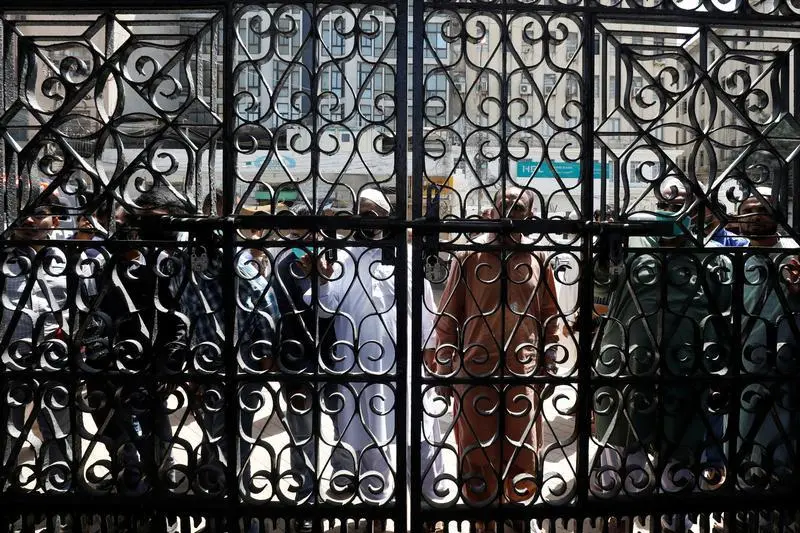PHOTO
ISLAMABAD - Pakistani authorities struggled to limit congregational prayers on Friday with devout Muslims defying government orders to stay home, threatening efforts to stem the spread of the coronavirus.
Religious Affairs Minister Noor-ul-Haq Qadri on Thursday capped the maximum number of people at prayers at five.
The announcement came after a meeting of President Arif Alvi with clerics from all religious sects, seeking their help in limiting the size of congregations, which in some cases swells to huge numbers during traditional Friday afternoon prayers.
"We wanted it up to 20, but if the government wants it up to five, I would appeal to the people to please cooperate," one of the clerics, Maulana Taqi Usmani, told ARY News TV.
Devout Muslims consider congregational prayer at a mosque to be holier than those held elsewhere and they regard it as mandatory to attend Friday afternoon services.
Three of the four Pakistani provinces heeded Qadri's orders while Khyber Pakhtunkhwa in the northwest made no decision and people there attended Friday prayers in their hundreds.
The northwestern provincial government did not respond to questions as to why it did not limit the congregation.
Attendance at prayers has dropped significantly across Pakistan but not close to the government's limit, witnesses told Reuters.
Prime Minister Imran Khan has disregarded questions about the mosque congregations during his interactions with the media.
About 400 people attending mosque in a neighbourhood in southern Karachi city who were angry when police asked the mosque office to close its gates, according to a Reuters photographer present.
A police officer there asked worshippers to go home. "I can't stop you by force, but I can just request you....to please just realise the situation," he said through a microphone.
Pakistan, which borders Iran and China, which have suffer two of the world's most deadly outbreaks of coronavirus, has reported 1,296 infections and nine deaths, the highest number in South Asia.
With a broken healthcare system and a population of 208 million, the world's sixth largest, Pakistan remains at risk of a wide scale spread of the coronavirus, experts have warned.
Religious extremism could pose a bigger threat to efforts to block the spread of the respiratory disease, officials say.
Villagers in remote conservative areas need to be educated, Mir wais Kaka, a social activist running a coronavirus awareness campaign in the southwestern Zarate district, told Reuters.
"My cousin told me that he would prefer to die (of the virus) if he dies just for saying a prayer (at a mosque)."
(Additional Reporting by Syed Raza Hasan in Karachi, Mubasher Bukhari in Lahore and Jibran Ahmad in Peshawar Writing by Asif Shahzad Editing by Mark Heinrich) ((asif.shahzad@thomsonreuters.com; +923018463683;))





















